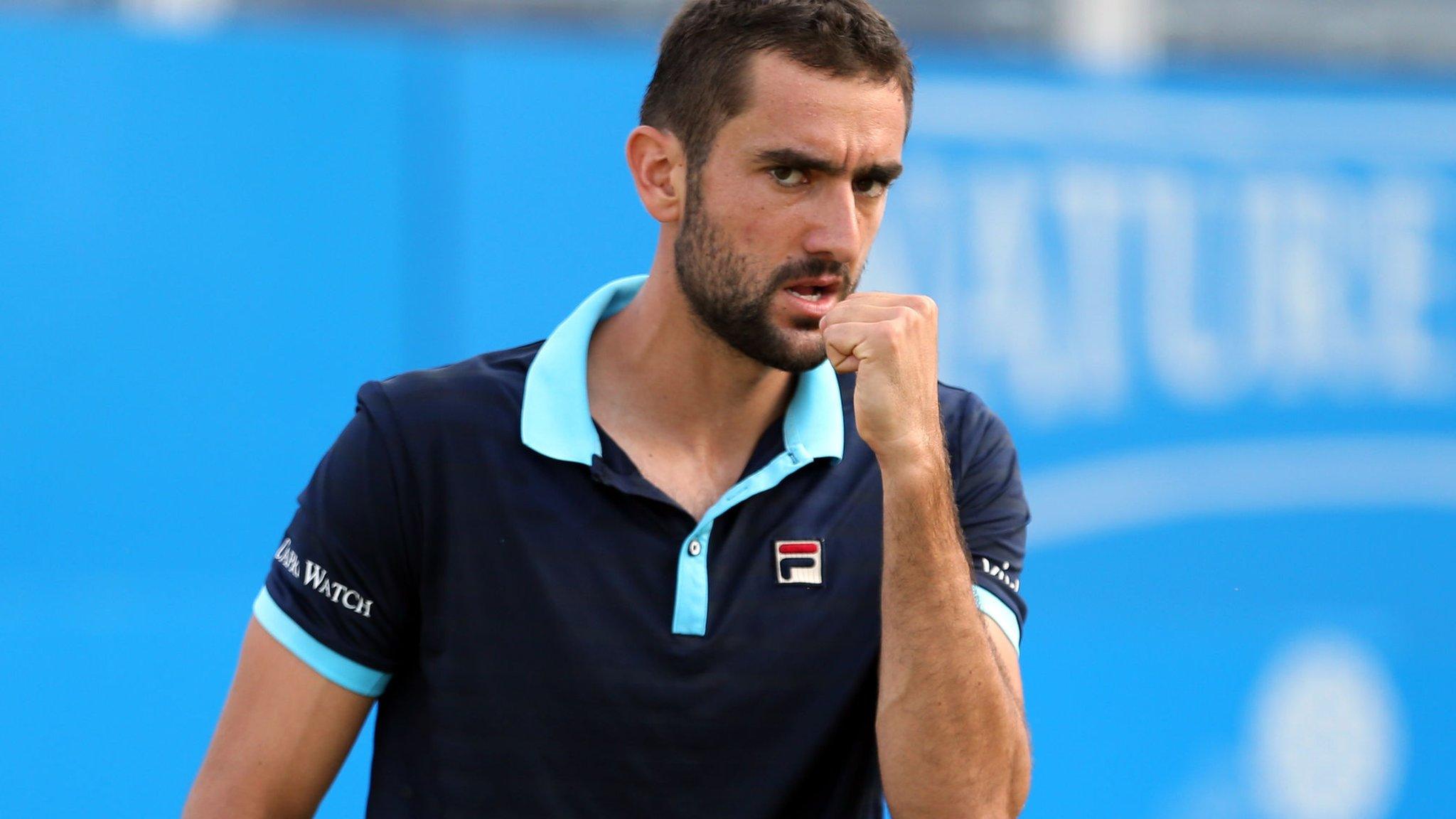Johanna Konta: The British number one - by those who know her well
- Published
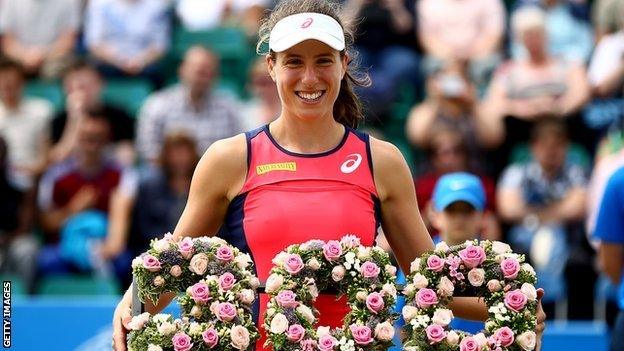
Johanna Konta secured her 300th career win last month
This feature was originally published on 20 June.
Johanna Konta was still at primary school when she set her heart on becoming the best tennis player in the world.
Konta, now the world number seven, admits she was "pretty serious" about her tennis from the age of nine, and her sleep-deprived father would no doubt agree. His daughter used to drag him out of bed at five in the morning to go for a run.
And her work ethic and attention to detail have been apparent to everyone she has come into contact with.
"If she has a routine to follow, she will follow it to the letter. It's almost robotic, but actually a huge strength," says Judy Murray, a former captain of Britain's Fed Cup team.
And, according to Pete McCraw - Tennis Australia's national women's coach when Konta was based in Sydney - she had a willingness to separate herself from her peers and was comfortable standing out from the crowd.
The dedication and sacrifices have paid huge dividends in the past 12 months as Konta has won WTA titles in Los Angeles, Sydney and Miami.
The 26-year-old, who has become one of Britain's most successful athletes, is now a Wimbledon semi-finalist.
The first British woman to reach that stage since Virginia Wade in 1978, she faces American 10th seed Venus Williams on Thursday.
So, who is the real Johanna Konta?
Dedication ahead of friendship in early years

Before tennis became her obsession, Konta can remember offering some treats to rainbow lorikeets on the balcony of her parents' flat. She soon discovered the medium-sized parrots would settle on the palm of her hand in exchange for a few granules of sugar.
One of her earliest tennis memories, though, is less comforting.
"I remember being at the net and being hit in the eye by what I thought at the time was this massive boy," she recalls.
"He smashed a ball into my eye. It didn't go blue or anything but I'm pretty sure I was afraid to be at the net for a while - but I got over it pretty quickly."
Konta was introduced to tennis at the age of eight, and the sport soon played a hugely significant role in her life.
"I remember that I was very dedicated to working hard. I would do anything I could or needed to do to be better, to be fitter, to be stronger," Konta says on a BBC Radio 5 live special.
"I didn't have very many friends when I was younger. I think because I was competitive and really committed to doing the work. I think that sometimes sets you aside from the norm."
'She loved writing what she had learned'
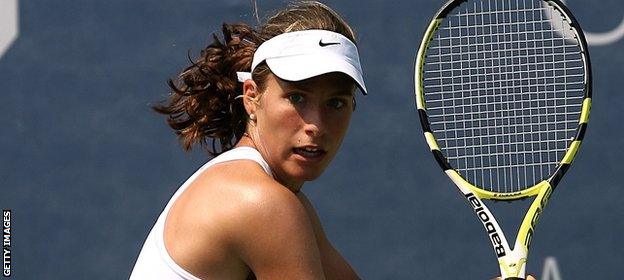
Konta at the US Open girls' singles in 2008 - four years before she would convert her nationality from Australian to British
Konta says she loved school, and loved learning, but realised home schooling was the only option if she was going to commit to the travel usually required to build a path into the professional ranks.
At the age of 12, Konta found herself in Mildura, in the north west of the state of Victoria, to compete in the junior grass-court national championships. It was the first time McCraw - Tennis Australia's newly appointed national women's coach - had set eyes on her.
"What caught my eye was a girl who, at an early age, was comfortable separating herself from her peers - a girl who brought a meticulous, organised, motivated approach to her tennis," he said.
At the time, Konta was rated as just the 388th best junior in Australia - a ranking that would not typically attract attention from a national coach.
McCraw noted her tenacity, drive, enthusiastic spirit, infectious smile and unrelenting desire to succeed. He frequently found her warming up, skipping and practising shadow swings long before the other juniors were on site.
"She loved writing what she had learned in her notebook," he remembers.
"She always had a clean grip on her racquet, her water bottle was full, and she was always on time. Probably the strongest memory is that she was always up for learning even when she was working on areas of her game that were not her strength.
"Sooner or later in tennis, you are going to have a peer group of one. You need to have a willingness to separate yourself, and Johanna brought that with her.
"She would even put her bag slightly offset from the other girls' bags in a communal place."
Konta had to separate herself from her parents for four months as a 14-year-old to attend the Sanchez-Casal Academy in Barcelona.
She remembers "waiting at the pay phone by the reception area every evening waiting for them to call".
Soon afterwards, the English south-coast resort of Eastbourne became home as her Hungarian parents decided to settle in the UK.
'Quirky' Konta a lover of home comforts
Konta has been happy in the past to describe herself as "highly strung". But that is perhaps less evident since she started to invest so much time in the mental aspect of her sport.
"There was a stage in my development where it was one of my main challenges to relax more," Konta recalls.
"I think I will always have an element of that but I like to think that, as I get older, I will have a better management of it and become calmer. I find myself someone who is deeply loyal to the people who are close to me.
"I'm very much a home body. I love the comfort of family, of home and I believe I'm quite a passionate person as well."
Konta says she loves eating and has recently enjoyed experimenting in the kitchen. She believes she makes really good roast potatoes and is "very close to attempting to make muffins".
Judy Murray sees a woman who has not always found it easy to deal with the attention associated with a sudden rise from 150 in the rankings to the world's top 10.
"You're suddenly in the spotlight and it's how much of yourself you want to share with everybody else, and not every player is comfortable doing that," says Murray. "She's quite quirky, she's good fun. I think she keeps herself to herself and she's perfectly entitled to do that."
Guarded with the media: 'It's not something that comes naturally'
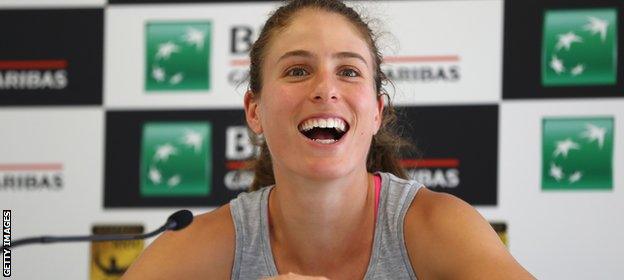
Konta reached the second round of Wimbledon last year
My hunch is Konta has many strong opinions, but chooses to bite her tongue despite often persistent questioning.
"I find that a lot of things get taken out of context," she explains.
"Even when you read articles, you still don't hear the tone of voice or the context in which it was said. I'm not talking specifically about me, I'm talking articles in general - I think it's a difficult art to capture the emotion the athlete is actually speaking with."
Murray believes it is important for the future of women's tennis that players are prepared to express their personalities and offer wider opinions about the game.
For the most part, Konta remains guarded in post-match interviews and refers to "staying in the process" and "keeping things in perspective".
But it was only relatively recently - at the US Open of 2015 - that Konta's efforts started to attract wider attention. So will she reveal more as she becomes more accustomed to life at the top?
"I think, for me, it's not something that comes naturally. I am quite a private person but I also understand the importance of sharing my journey with not just the people that are following my progress, but also with young girls who want to become an athlete."
- Published20 June 2017
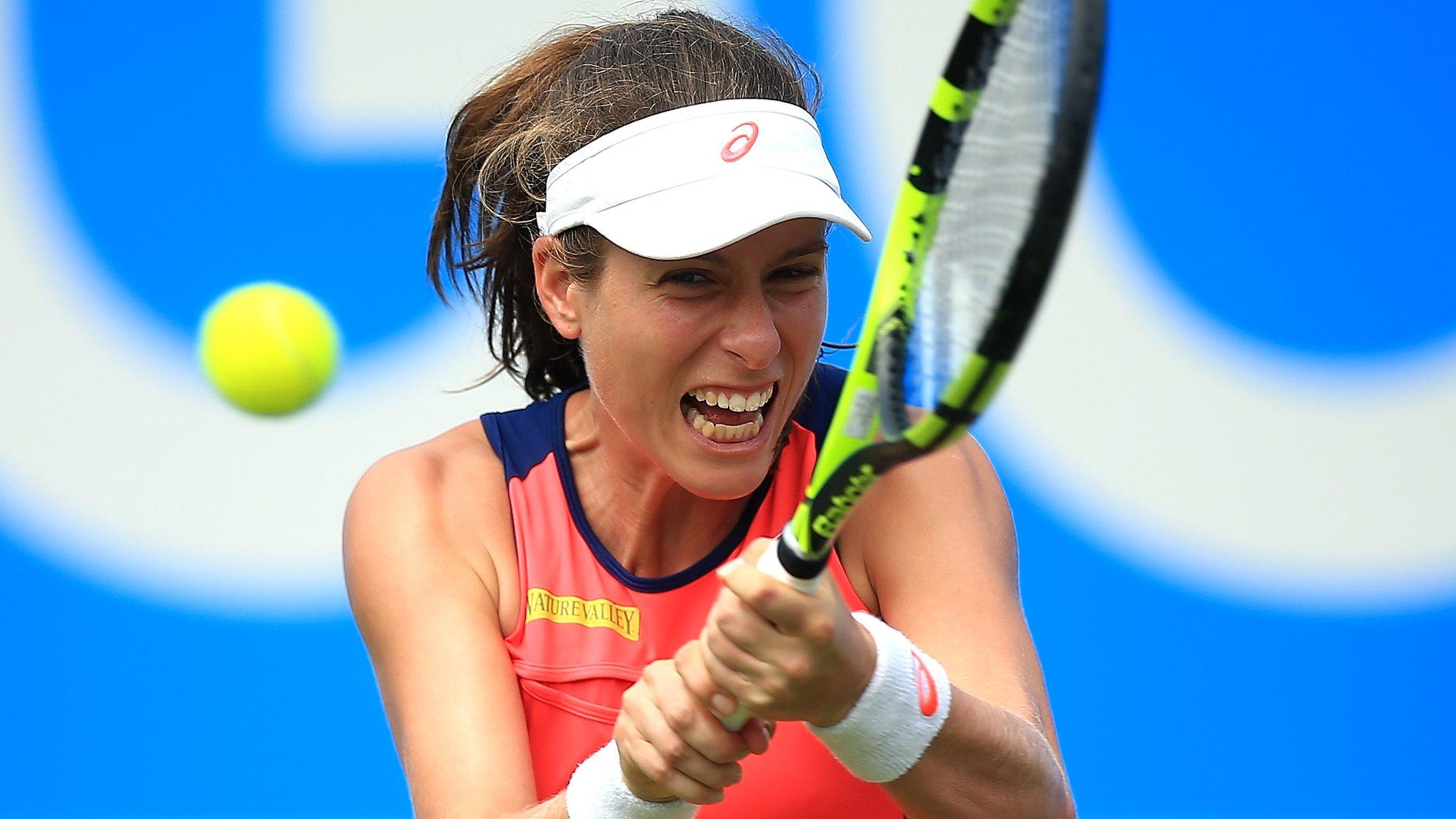
- Published14 June 2017
